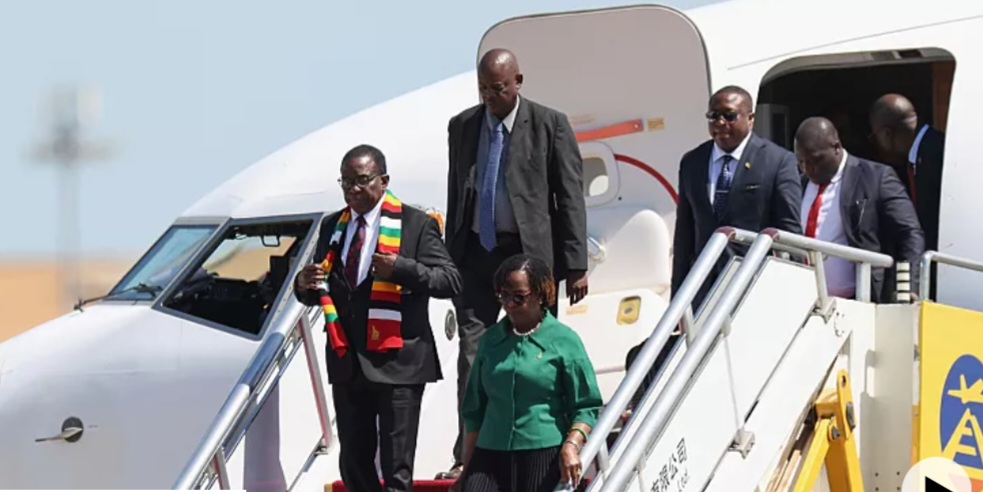
Ofure Akhigbe
Zimbabwean President Emmerson Mnangagwa has arrived in Beijing to join more than two dozen world leaders for a high-profile military parade commemorating the 80th anniversary of the end of World War Two. The event, scheduled for Wednesday, highlights China’s growing military capabilities and is set against the backdrop of an important geopolitical summit taking place concurrently in northern China.
Among the attending dignitaries are Russian President Vladimir Putin and North Korean leader Kim Jong Un, signaling deepening ties among nations increasingly critical of Western global dominance.
The parade is expected to feature over 100 aircraft, along with a wide array of domestically produced tanks, missiles, and other advanced weaponry. It serves as both a commemoration and a demonstration of China’s technological self-reliance and military modernization.
While the parade captures global attention, a quieter but no less significant event is unfolding nearby: the annual summit of the Shanghai Cooperation Organization (SCO). The 10-member regional bloc, founded in 2001, has gained momentum in recent years and now includes China, Russia, India, Iran, Pakistan, and Belarus, among others.
In his opening remarks, President Putin positioned the SCO as a key platform for shaping a multipolar world order, calling it “a powerful driver of global development processes and the establishment of genuine multilateralism”
The SCO, originally created as a counterbalance to U.S. influence in Central Asia, has expanded both in size and ambition. India and Pakistan joined in 2017, Iran followed in 2023, and Belarus became the latest addition in 2024. Despite the political diversity of its members — some traditional rivals and others outright critics of the West — the alliance shares a common interest in challenging the current U.S.-led global system.
Analysts say the group’s cohesion is fueled by opposition to Western sanctions, economic pressures such as trade tariffs, and perceived imbalances in global governance — especially in light of conflicts like the war in Ukraine.
However, the SCO’s long-term vision remains vague, with limited transparency regarding its programs, decision-making processes, or strategic priorities. Still, its rising influence cannot be ignored, especially as its summits increasingly draw attention from global powers and media alike.
The simultaneous hosting of a military parade and strategic summit reflects China’s dual strategy: projecting hard power through its military, while consolidating soft power and geopolitical partnerships through forums like the SCO.
For Zimbabwe, Mnangagwa’s participation signals deepening relations with Beijing and alignment with a global bloc seeking alternatives to Western political and economic models.
International observers continue to monitor developments closely, with many viewing the SCO’s rise as indicative of a broader shift toward multipolarity in global affairs — one where emerging alliances are beginning to redraw the post-Cold War balance of power.
